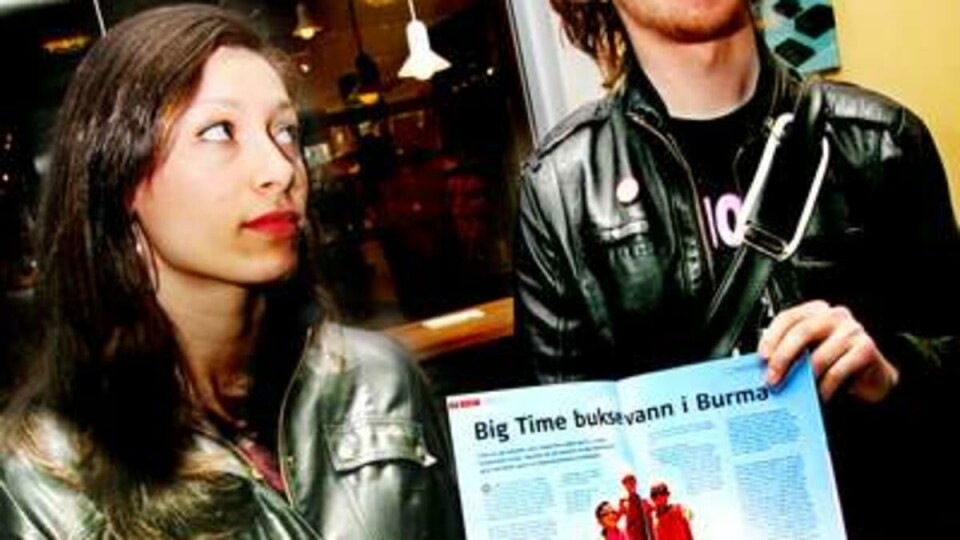
NSU seeks boycott of Burma
At their National Assembly, the National Union of Students in Norway (NSU) has proposed a boycott of Burma as a tourist area.
– Kilroy depicts Burma as an exotic vacation paradise, something which
gives an extremely distorted view of the actual situation in the country.
Burma is a place of pervasive human rights abuse, including systematic rape
of women and girls. The country has no democratic values, says executive for
international affairs at the Student Parliament, Robin Sande.
Now, Sande has joined forces with Caroline Khoury, soon to be executive for
international affairs at the National Union of Students in Norway (NSU).
Together they have drawn up a resolution to boycott Burma. They both believe
that the boycott will hurt the military regime financially, and that it will
raise awareness of the suffering of the Burmese people. They take a strong
stance against Kilroy's latest travel brochure, in which Kilroy is
advertising for backpacking trips to Burma.
– We think that what Kilroy is doing is wrong. They are giving Norwegian
youth and students a distorted view of the situation, Sande stresses.
He calls to mind Charm Tong's recent visit to Norway to collect the Student
Peace Prize, an award she won for her contribution in the struggle for peace
and human rights in Burma.
– Charm Tong especially urged a boycott of Burmese goods and tourism. She
specifically said that the tourist industry is the main source of income to
the military regime, Sande says.
Does not want to boycott
Our aim is not to describe the political situation in Burma, states Rune Feltman, managing director of Kilroy Travel Norway. He respects NSU's stand, but does not share their belief that a boycott can make a difference in Burma. Feltman claims that the situation in Burma is well known, and points to the value of going there to see the situation first hand.
– We believe that a boycott is the wrong way of going about it. If a
country is isolated, no one can tell what is actually going on. We are only following the recommendations of the Ministry of Foreign affairs. Human rights abuse takes place all over the world and a boycott is not necessarily the best solution, Feltman adds.
No effect
Professor of Political Science, Jon Hovi, has studied how boycotts and
sanctions work, and he doubts that the proposed boycott by the NSU will have
an effect. He believes that the boycott must take a stronger stance and that
it must involve more companies if it is to have an impact.
– It is not very likely that this will make a difference when it comes to
the military regime in Burma, and so the boycott rather becomes a symbolic
action, a way of showing solidarity. The question is whether or not the NSU
is doing the right thing by proposing a boycott that has no effect.

































